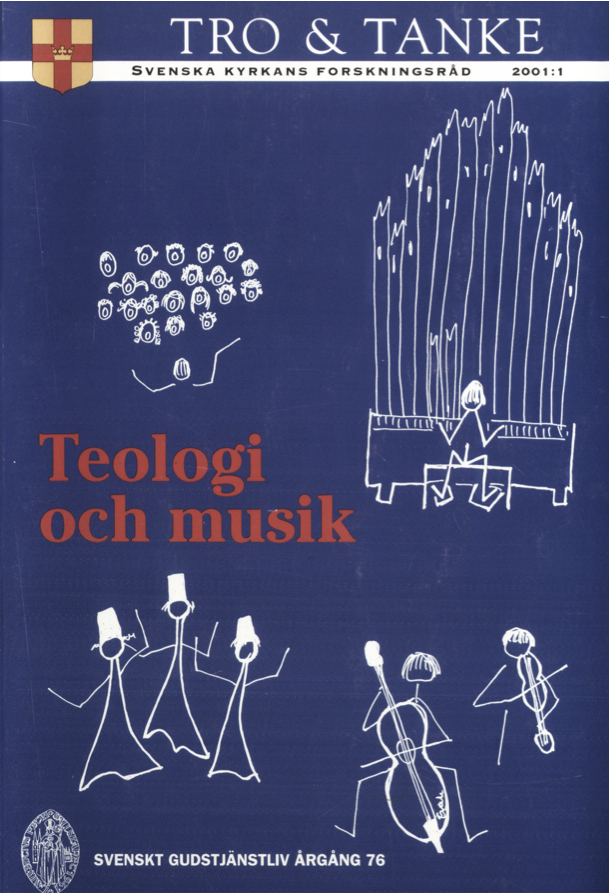Musik - tro - teologi Om kyrkomusiken i Svenska kyrkan
Abstract
The aim of this presentation is to illustrate the role of music in order to form an opinion of the Christian creed and deepen the substance thereof. Nine people were interviewed. They have in various ways contributed to the reflection on church music in the Church of Sweden. The interviews reflect the interviewees’ picture of the relationship between music and creed, which they express in their work. Their answers are described under four headings/ motives: music as a gift from God, music as hearer of the Word, music in prayer, listening and songs of praise, and music as a meeting-place.
Music is seen as a gift from God, but it has also the function as an intermediary between divine gifts and human gratefulness. The idea of management can he attached to this motive, and here the church musician has a special responsibility. Music is part of creation, and it can thus convey pictures and experiences of God. Through music God can reveal himself to human beings.
Music carries the Word to people. Music is seen as a tool for words and a means whereby the message can be conveyed. Music can make people receptive to God’s Word. The interviewees express that evangelisation can be the first step towards an interpretation of people’s faith. Faith is seen as a process and as something that people grow into. Music can help promote the development and strength of faith.
Music can help people get closer to God in prayer, listening, and songs of praise. It can canalize gratefulness and happiness, hut also questions, worries, and problems. By listening, a person can perceive God’s communicating and acting. The goal is a communication with God.
Music is established in a divine and human context, where it functions as a meeting-place, both between the human being and God, and between human beings. The meeting with God is not committed to a certain place— like inside a church—hut the church creates possibilities for meetings in services and liturgy. The meeting can take a different turn musically, de pending on time and place in the world.
Music is a tool in a process which consists of getting closer to faith, expressing faith, and deepening Christian faith. The interviewees see a connection between music and theology, but theological concepts and motives are not self-evident nor very developed. The interviewees do partly lack the language to express themselves theologically on music. Developing concepts for the work you do can deepen the analysis of the role of music in services as well as in other church activities.
Downloads
Published
Issue
Section
License
© the authors, Laurentius Petri Sällskapet för Svenskt Gudstjänstliv and Artos & Norma Bokförlag. Copying and using material from Svenskt Gudstjänstliv for scholarly purposes is permitted as long as the source is indicated. For other uses, please contact the respective author as well as the publisher. Special restrictions may apply to images.


